The WIRTGEN GROUP, headquartered in Germany, is the World’s No. 1 in the field of mobile Road Construction and Road Rehabilitation equipment. The group of companies presents itself with its strong c... read more




After a hiatus of 4 years due to the pandemic, IGTC was thrilled to restart and welcome a group of 25 German students, accompanied by 2 senior professors Dr. Philip Pohl and Mr. Volker Ihle, from the prestigious Duale-Hochschule Baden-Württemberg (DHBW), Karlsruhe for a 12-day “Business Environment India” intercultural study trip to Mumbai. The group of students came from different disciplines such as business administration, engineering, and social sciences. IGTC put together an exciting agenda that included interesting lectures, visits to renowned companies and cultural landmarks, and an immersion into Indian cuisine, culture and philosophy which are deeply intertwined with our way of life. Undoubtedly, a deep dive!
Germany and India are two countries with vastly different cultures and economies, yet they share a common interest in fostering innovation and technological advancement. This is why we arranged for company visits for our German students so that they could learn about the country’s unique business practices and could gain valuable insights into the emerging market. One of the most exciting aspects of these visits was the opportunity to witness first-hand how businesses are adapting to the changing market conditions.
During the visit, the students had the opportunity to visit the DHL service station in Byculla and the Rhenus Logistics plant in Bhiwandi across Mumbai to gain insights into this complex and rapidly evolving logistics industry in India. They learned about the complexities of the Indian logistics network, including the challenges of road transport, congestion, and outdated infrastructure. During the informative tour of the service station, the students were deeply impressed by the level of professionalism and efficiency displayed by the DHL team, despite the challenges of operating in a crowded and bustling city like Mumbai. On the other hand, the students were impressed by the scale of the operations at the Rhenus Logistics plant, and the level of technology and automation employed by the company. They noted that the facility was equipped with advanced machinery and software to manage inventory and track shipments. The students also appreciated the focus on sustainability and environmentally friendly practices in both organizations.
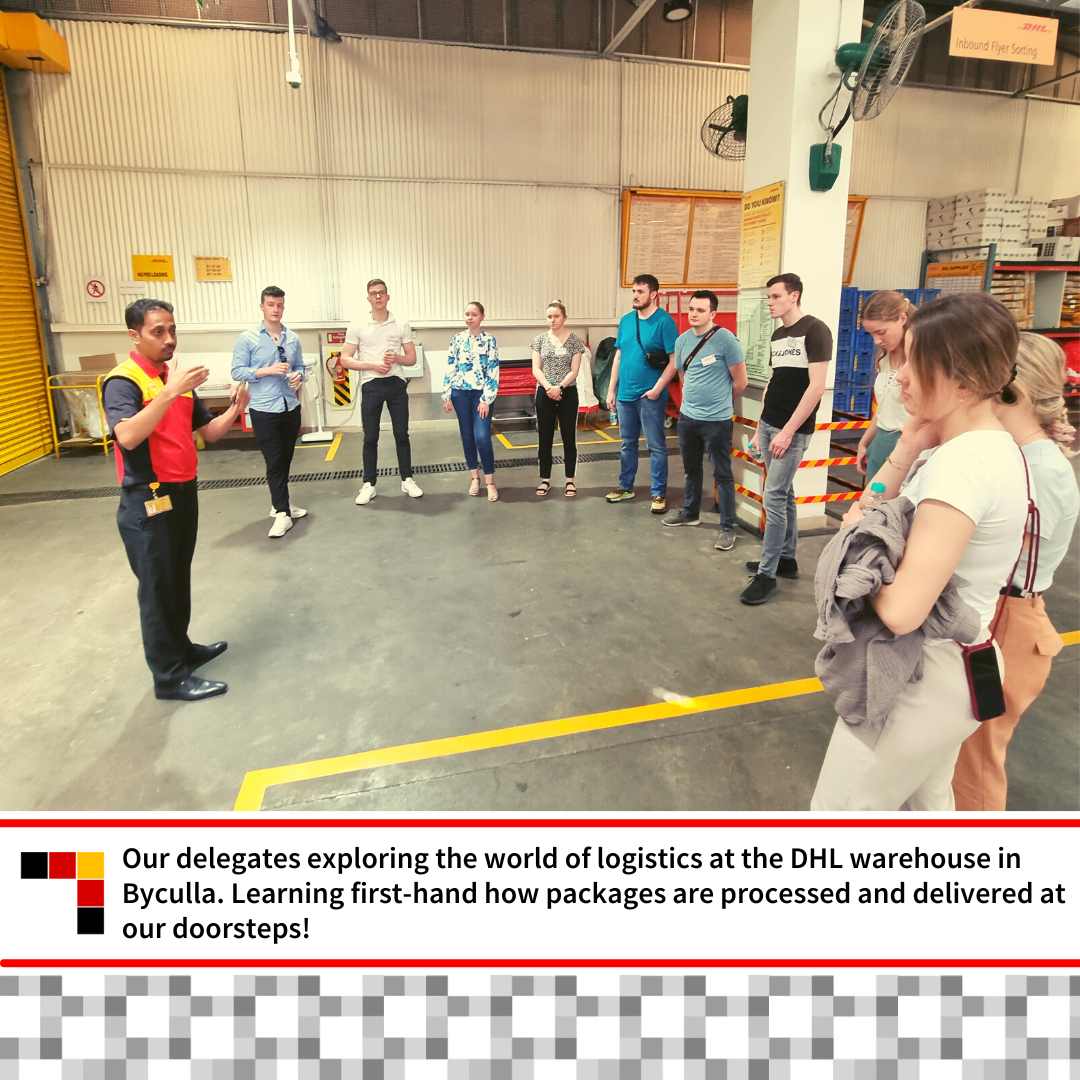
To gain an understanding of the automotive industry in India, the German students visited the Bosch and the SEW – Eurodrive plant at Chakan, Pune. At the Bosch plant, the students learned about the production of automotive parts and were impressed by the precision and efficiency of the advanced machines used in the manufacturing process. At the SEW Eurodrive plant, the students learned about the production of industrial gearboxes and motors. They were able to see the various stages of the manufacturing process, from the casting of metal parts to the assembly of the finished products. The students also met the employees and asked questions about the company’s operations.
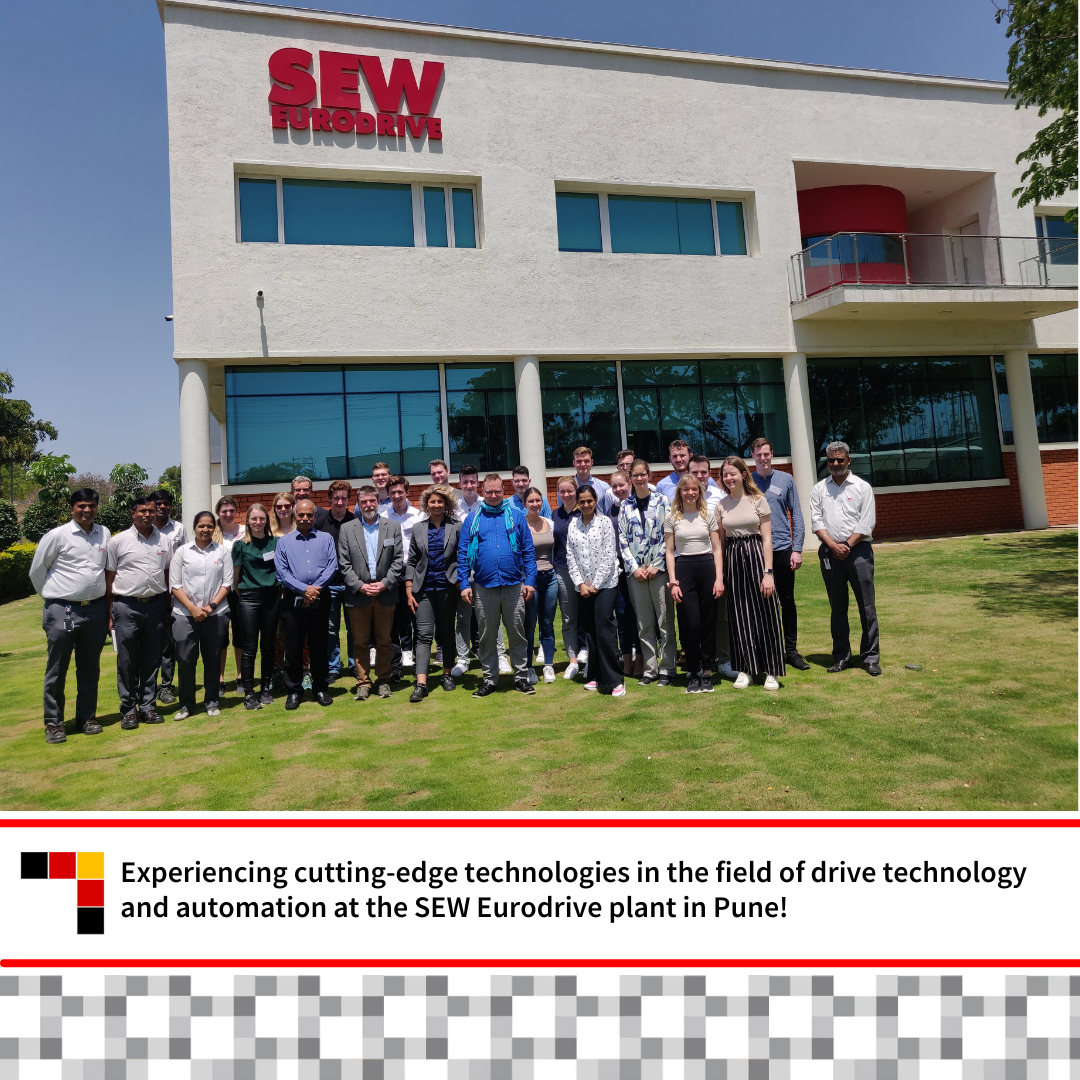
BASF and Siemens Limited gave the students exposure to the cutting-edge technologies and innovative practices being employed. At the BASF Innovation Centre, they met the BASF scientists and engineers. They were able to interact with the production team and ask questions about the manufacturing processes and quality control procedures. At Siemens Limited, the students got an overview of the company’s various business divisions, their operations and their research and development activities in India. The students were particularly interested in Siemens’ work in the renewable energy sector and in developing innovative solutions for India’s energy needs and sustainable development.

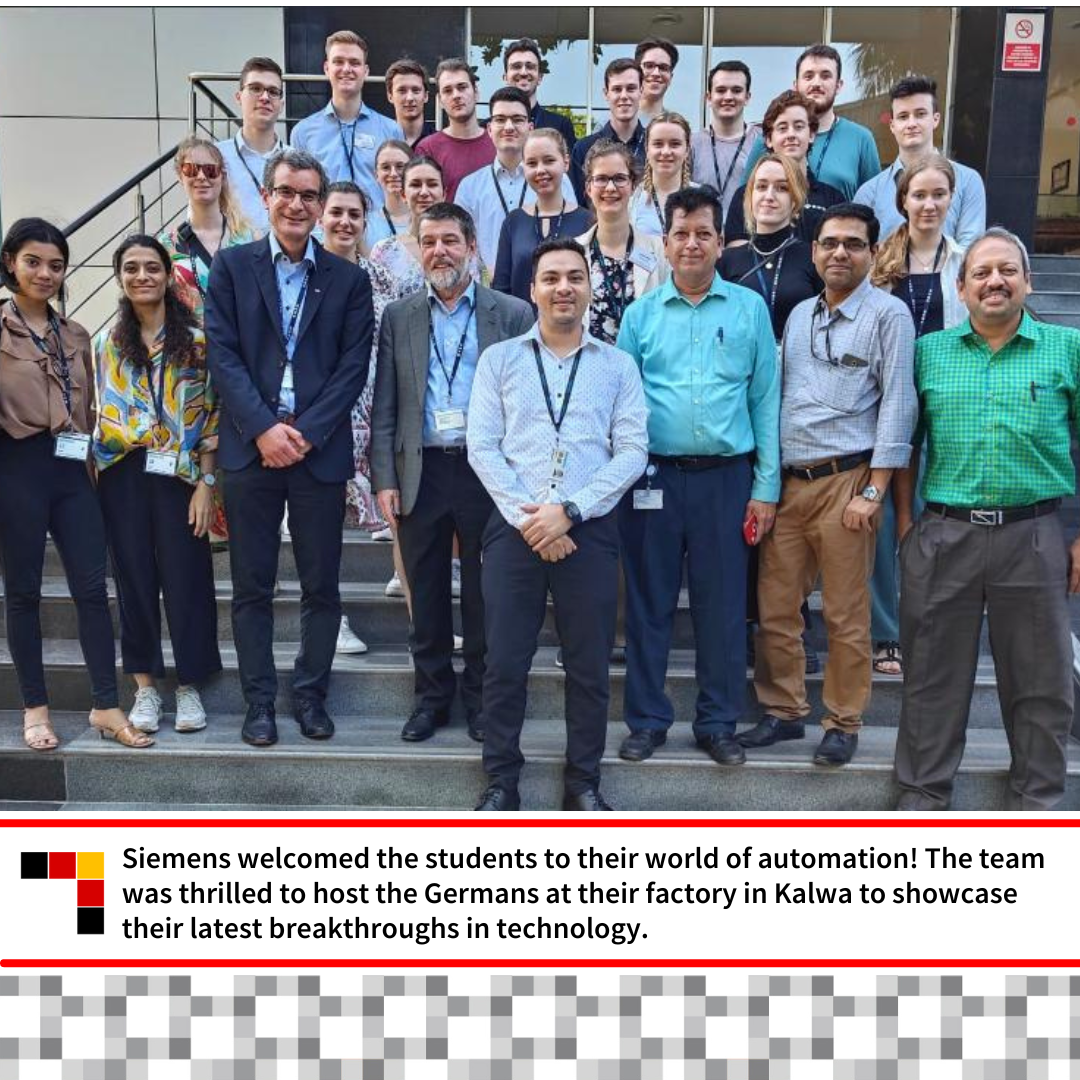
Last but not least, the students visited Tech Mahindra Business Services Ltd, where the students learnt about the company’s expertise in providing digital CX and back-office services across the industry. They gained insights into the company’s operations, technological solutions, and their approach to delivering efficient and effective services to their clients. Overall, the various company visits were an invaluable learning experience for the German students. The firsthand insights into the operations and management of multinational companies in India will undoubtedly be of great value to them as they pursue their future careers.
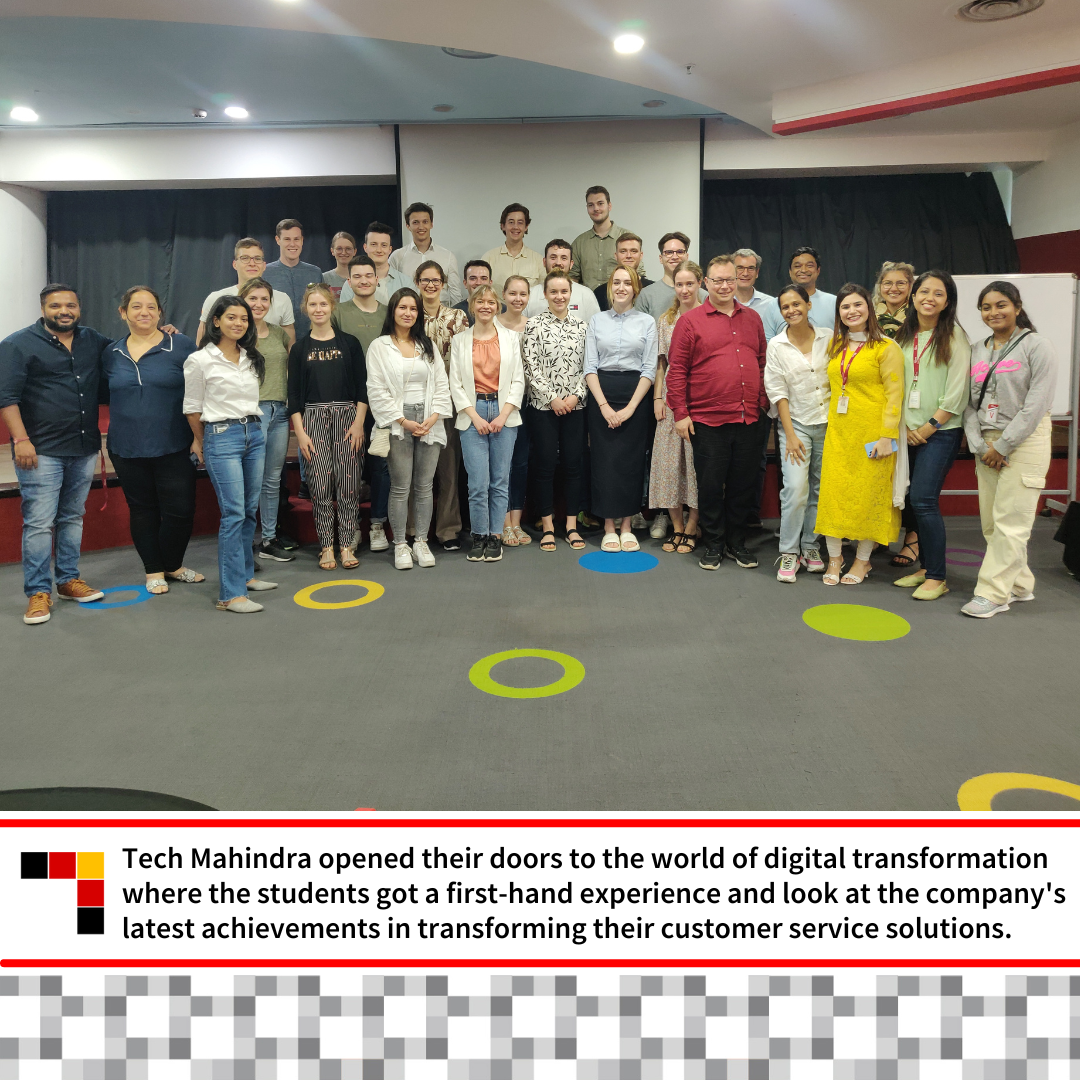
The lectures were designed to provide the students with insights into various aspects of Indian culture, business, and society, and to help them gain a deeper understanding of the country.

A lecture by Priyanka Kumar focused on the importance of cultural orientation, ayurveda, yoga and meditation. She explained the history and philosophy of yoga and meditation, and how it can be used to promote physical, mental, and spiritual well-being. The students were also given a practical demonstration of various yoga postures and breathing exercises. The lecture was well-received by the German students, who found them to be informative and enriching. Then, a lecture on communications and storytelling, conducted by Masooma Pathre and Bhavik Doshi, aimed at providing the students with insights into the art of effective communication and how to tell stories that captivate and engage audiences. The students were introduced to various communication tools and techniques and were given tips on how to develop strong messaging and create impactful presentations.

Industry stalwart Dr. Suhas Rane delivered a lecture on the logistics industry in India. He provided an overview of the industry’s growth and development in India, as well as its challenges and opportunities. The students learned about the various modes of transportation used in the country, including road, rail, air, and water, and the challenges associated with each mode. The lecture was followed by a live demonstration of the Mumbai Dabbawalla system at Churchgate Station. The Dabbawallas are a group of highly organized and efficient lunchbox deliverymen who transport over 200,000 lunchboxes across Mumbai every day. The students observed how the Dabbawallas use a complex system of codes and symbols to ensure the timely delivery of the lunchboxes to their intended recipients. The students found the lectures to be informative and engaging and were grateful for the opportunity to learn from experts in their fields.
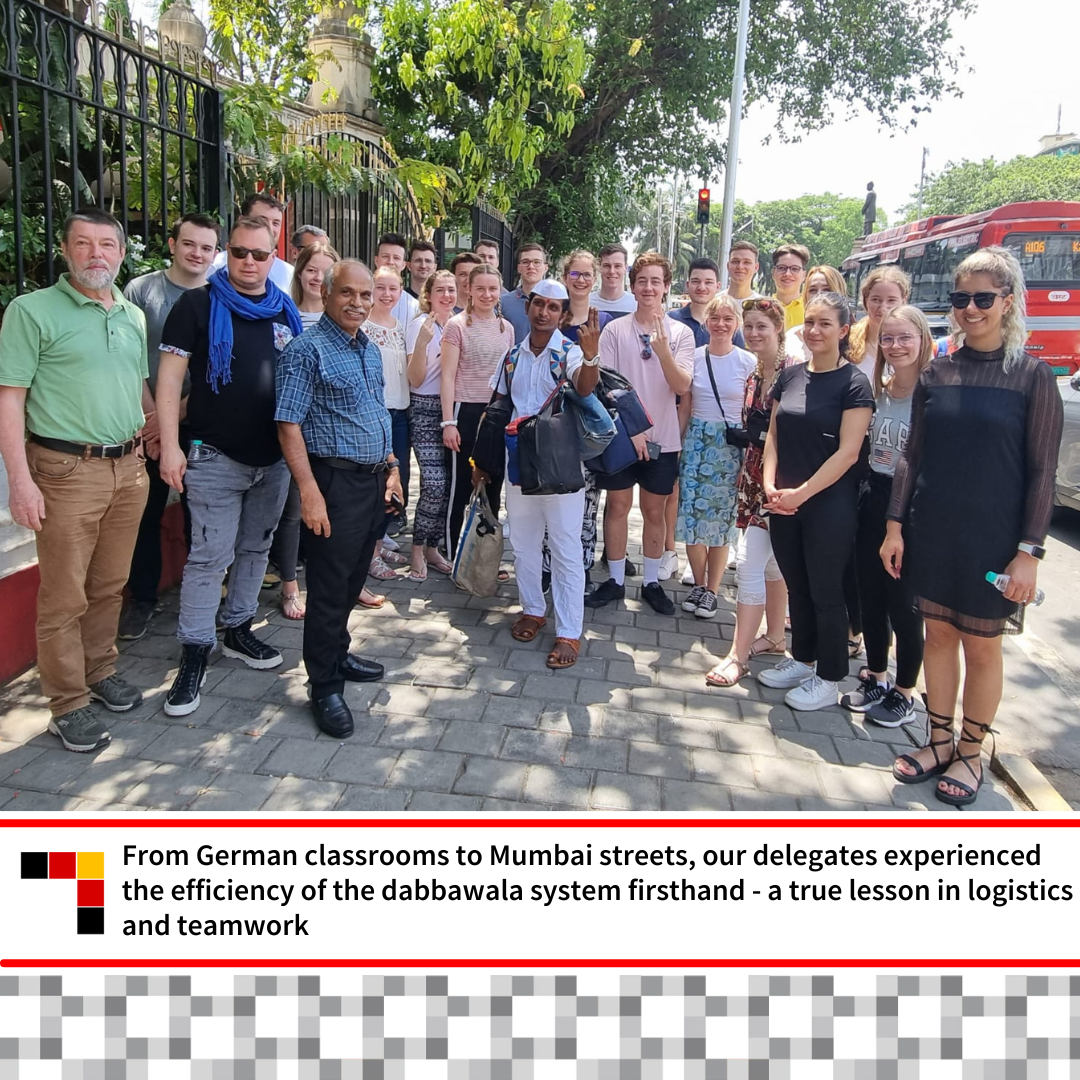
As part of the cultural agenda, the students had the opportunity to explore Dharavi, known as Asia’s largest slum. This visit proved to be eye-opening for the students as they discovered the bustling workshops where various activities took place, such as leather tanning, plastic container recycling, and garment production. The students also visited the Borivali National Park. Nestled within the bustling city of Mumbai, the park offered them a tranquil and natural setting to explore. It allowed them to appreciate India’s natural heritage and gain insights into the country’s approach to environmental conservation within an urban context.
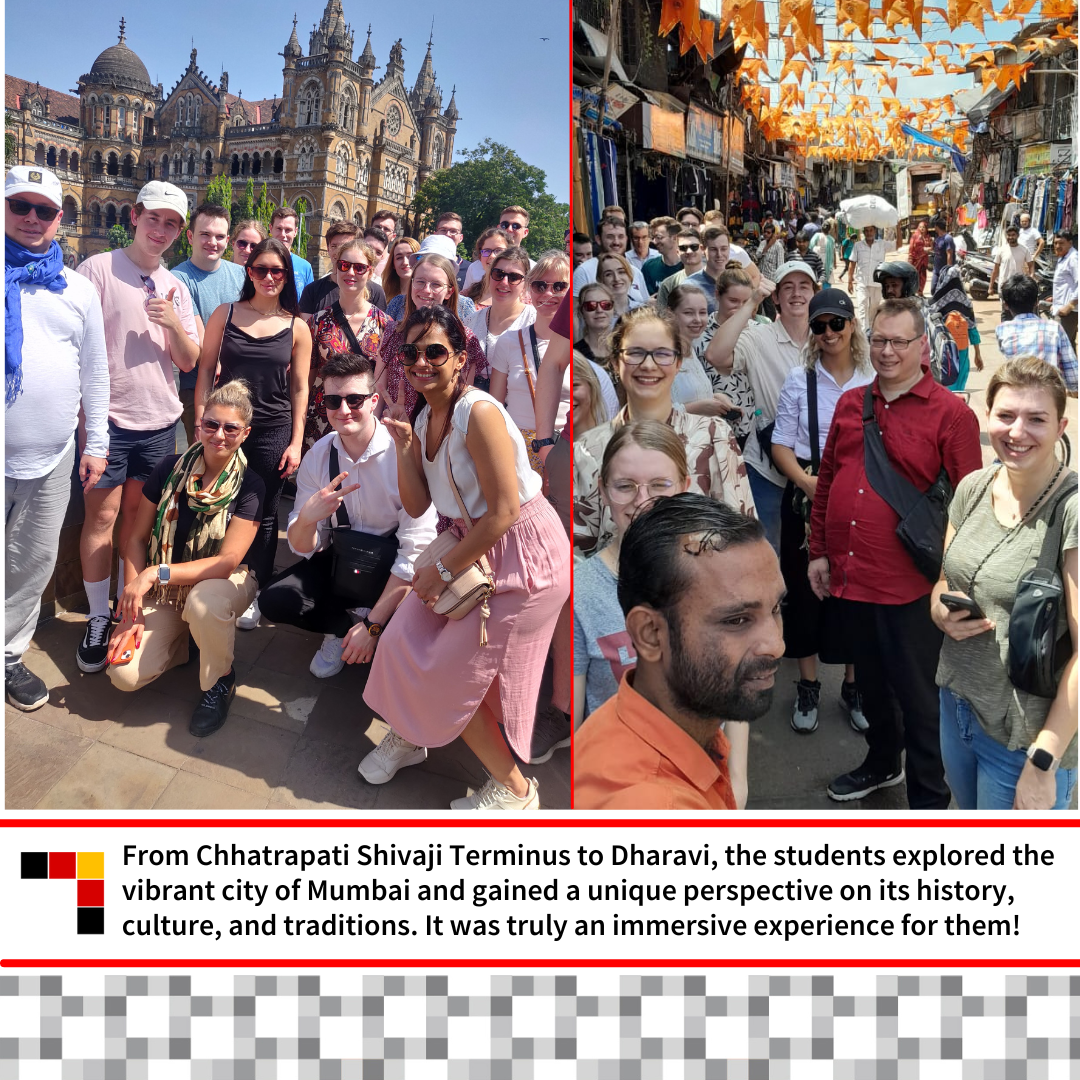
In addition to accompanying the German students to the various program activities, the IGTC students went the extra mile to ensure that their guests had a fantastic time exploring the city and experiencing its vibrant nightlife. They took it upon themselves to introduce the German students to the lively world of Bollywood dance. They taught them some energetic and fun Bollywood dance steps, adding an element of entertainment and cultural immersion to their visit. The German students were thrilled and grateful for this unique opportunity to learn and experience a traditional form of Indian dance. The IGTC students’ efforts to entertain and engage their German counterparts added an extra layer of warmth and camaraderie to their cultural exchange. The German students were overwhelmed by the kindness and hospitality they received throughout their stay, making their experience in Mumbai truly unforgettable.